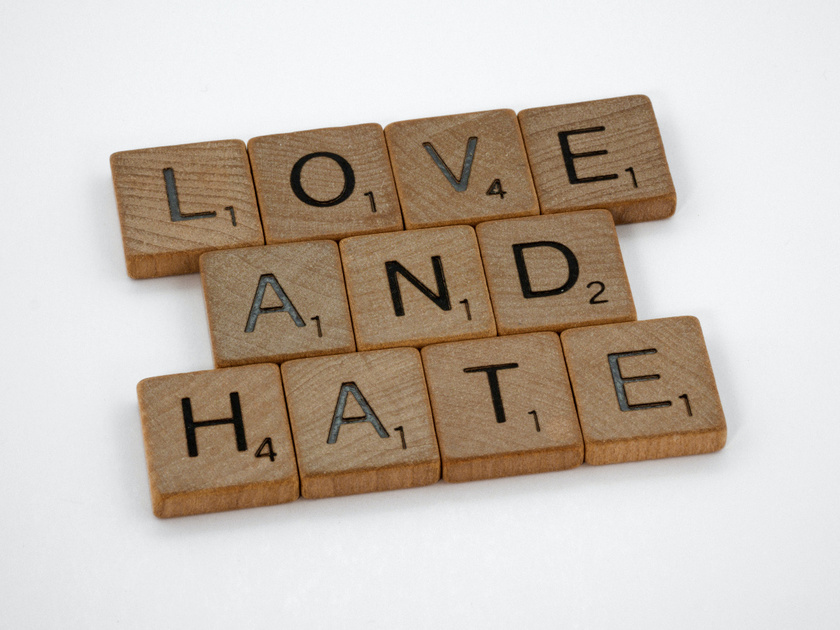
Why do We Hate The People Loved?
Rabbi Simcha Feuerman, DHL, LCSW-R
The Recent daf Yomi (Succah 4b), quotes a verse (Shemos 25:22) that becomes the inspiration from one of my favorite sayings in the Gemara.
◊ē÷į◊†◊ē÷Ļ◊Ę÷∑◊ď÷į◊™÷ľ÷ī÷£◊ô ◊ú÷į◊ö÷ł÷ģ ◊©◊Ā÷ł◊Ě÷í ◊ē÷į◊ď÷ī◊Ď÷ľ÷∑◊®÷į◊™÷ľ÷ī÷®◊ô ◊ź÷ī◊™÷ľ÷į◊ö÷ł÷ú ◊ě÷Ķ◊Ę÷∑÷£◊ú ◊Ē÷∑◊õ÷ľ÷∑◊§÷ľ÷Ļ÷ó◊®÷∂◊™ ◊ě÷ī◊Ď÷ľ÷Ķ◊ô◊ü÷ô ◊©◊Ā÷į◊†÷Ķ÷£◊ô ◊Ē÷∑◊õ÷ľ÷į◊®÷Ľ◊Ď÷ī÷Ē◊ô◊Ě ◊ź÷≤◊©◊Ā÷∂÷Ė◊® ◊Ę÷∑◊ú÷ĺ◊ź÷≤◊®÷£◊ē÷Ļ◊ü ◊Ē÷ł◊Ę÷Ķ◊ď÷Ľ÷Ď◊™ ◊ź÷Ķ÷£◊™ ◊õ÷ľ◊á◊ú÷ĺ◊ź÷≤◊©◊Ā÷∂÷ß◊® ◊ź÷≤◊¶÷∑◊ē÷ľ÷∂÷õ◊Ē ◊ź◊ē÷Ļ◊™÷į◊ö ◊ź÷∂◊ú÷ĺ◊Ď÷ľ÷į◊†÷Ķ÷•◊ô ◊ô÷ī◊©◊ā÷į◊®÷ł◊ź÷Ķ÷Ĺ◊ú◊É {◊§
‚Ā¶There I will meet with you, and I will impart to you—from above the cover, from between the two cherubim that are on top of the Ark of the Pact—all that I will command you concerning the Israelite people.
The Gemara in Sanhedrin (7a) notes that the Mishkan was relatively small and was able to house the Shekhina (presence of God). Yet, Solomon’s Temple, which was 60 cubits long and 30 cubits high, three times the size of the Mishkan, was less able to contain the Shekhina. As it states in Isaiah (66:1): ◊ī‚Ā¶“Thus says the Lord: The heaven is My throne, and the earth is My footstool; where is the house that you may build for Me? And where is the place that may be My resting place?”
The Gemara explains what changed by using the following adage:
‚Ā¶When our love was strong, we could have slept on a bed that was the width of a sword. Now that our love is not strong, a bed of sixty cubits is not sufficient for us.
In other words, when the love Between God and the Jewish people was strong, as in the early years of the wilderness, God was, so to speak, able to squeeze into a small place. Later, as the relationship soured, presumably through sin and, perhaps more significantly, apathy, the space for the Shekhina was not big enough.
Why is it that the qualities and idiosyncrasies of those we love are found endearing during courtship can end up becoming loathsome when the honeymoon is over? This pattern is as old as scripture, as it is written, (Samuel II:13:15): “‚Ā¶Then Amnon felt a very great loathing for her; indeed, his hatred for her was greater than the love he had felt for her!” But what psychological mechanisms account for this?
Interestingly, research shows that strong passionate love and hate are neighbors in the brain’s neurocircuitry. (https://www.sciencedaily.com/releases/2008/10/081028205658.htm ). However, proximity of neurocircuitry and brain function similarity does not tell us the psychological function.
As an important aside, this is what makes biological discussions of brain chemistry as well as psychological discussions of religion fraught with error. That is because understanding the underlying technical mechanisms do not explain the systems of meaning. By way of example, a person could be the world's most brilliant programmer and design a fantastic app, say a word processor or even a program to compose music. Being a brilliant programmer, he could even imagine all the different possible iterations and how the app functions. However, there is one thing that he will never know unless he actually uses the app. That is, what is the subjective experience and meaning of the app. An organic chemist can tell you all the different oil compounds that go into a masterpiece painting, and a neurobiologist can tell you what parts of the brain fire up when you see the Mona Lisa, but he or she still will never be able to tell you what the painting means. So when we try to explain psychology with brain chemistry, or for that matter, when we try to explain religion with psychology, we always will be missing something, and that is the inter-subjective experience.
In any case, back to our story. Why is it that some of the very same things we originally loved in a person sometimes turn loathsome? This may be partially explained by what we call the repetition compulsion. The psychological principle of the repetition compulsion means that we seek to repeat the original developmental and relational context that we grew up in. But not only that, it comes from an unconscious wish to repair and rectify. So we might marry somebody who is in some ways like our father and our mother because: 1. This is familiar, and means love to us, as imperfect as it may be and, 2. We have a deep wish to revisit the challenges in the relationship and make them better.
Therefore, many of the idiosyncrasies we enjoyed with the people we become romantically attached to are because they have similar traits to our original relationships. In fact, part of the attraction is a hope to rectify and improve and revisit and correct some of the lacunae, and have a better experience. However, if we enter into frustrating interactions, hope begins to fade and the original rage and resentment at the deprivation come back, sometimes even stronger than before.
Rabbi Simcha Feuerman, DHL, LCSW-R has a youtube channel and blog that offers a daily psychological insights from the Daf Yomi
Photo by Brett Jordan on Unsplash
 Previous
Previous

